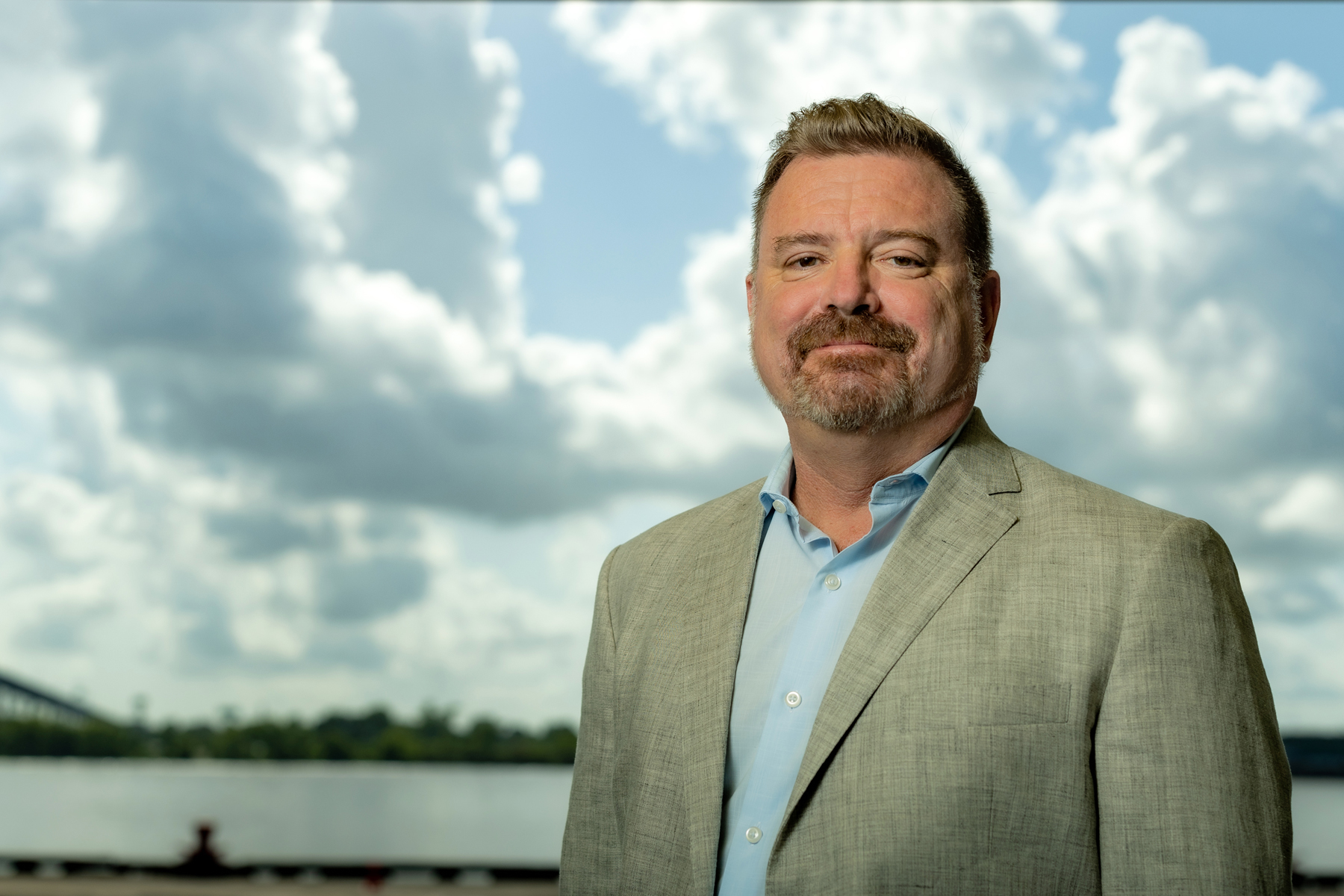John Sabo
Director

Areas of Expertise
Biography
John Sabo is a professor in the Tulane Department of River-Coastal Science and Engineering. He is also director of the Tulane ByWater Institute, a research institute dedicated to creating transdisciplinary and transformative research that advances resilience of water resources in New Orleans, the Mississippi River Basin and in tropical river basins in the developing world.
By training, Sabo is a river food web ecologist and has designed and implemented large-scale field experiments to understand the role of aquatic-terrestrial energy flow on terrestrial food web dynamics as well as the dynamic effects of ground water on surface water food webs. His research has been published in such leading journals as Ecology, Ecological Monographs, Ecology Letters, Global Change Biology, Frontiers in Ecology and the Environment, PNAS, and Science. His work has been supported by over $14 million in research grants from the National Science Foundation, the U.S. Department of Defense, the U.S. Geological Survey and the MacArthur Foundation, among others.
Sabo has developed quantitative, data-driven methods to connect hydrology to freshwater fisheries and aspects of riverine biodiversity. His work is driven by a desire to understand how to better manage basin scale flows in such rivers Colorado River in Arizona’s Grand Canyon, the Mekong River in Southeast Asia and the Amazon River in South America.
As the ByWater director, Sabo seeks to leverage his training as an Aldo Leopold Leadership Fellow to synthesize and synergize the diversity and depth of Tulane water scholarship. To do this, ByWater sponsors innovative interdisciplinary faculty teams to build research assets that catalyze boundary-crossing water research. ByWater also facilitates the translation of this research into impact via collaboration with a unique set of NGOs, transboundary multilaterals, the Army Corps of Engineers and other similar government organizations, the private sector, venture funds and innovation ecosystems.
Sabo is founder and CEO of Future H2O-B, a private sector benefit corporation (B-corps) that serves science to Fortune 500 companies and transboundary river organizations worldwide.
Education
University of California, Berkeley
University of Washington
University of Notre Dame
Accomplishments
Aldo Leopold Leadership Fellow, Earth Leadership Program
The Earth Leadership Program is a program of Future Earth in collaboration with: Stanford Wood Institute for the Environment and the University of Colorado-Boulder.
Links
Media Appearances
Can A River Be Too Big To Fail? Why The Mississippi River Needs A National Lab
Nearly 30 percent of Americans live in the Mississippi River Basin. Water from 31 states and two Canadian provinces ultimately makes its way into the Mississippi. Because of its size and reach, from shipping and agriculture to commercial fishing and tourism, calculating the economic impact of the Mississippi River Basin is almost impossible.
Fast Clinical Trials For Planetary Health: How Science Can Get Ahead Of Climate Change
We don't just need faster clinical research for COVID. We also need fast clinical trials for planetary health: science that quickly delivers solutions for climate adaptation and water security challenges. And we need those solutions to be able to work at scales as large as the entire Mississippi River watershed.
Engineering Nature To Make Clean Energy
Science and technology took us to space, and they can lead us to clean energy solutions and sustainable water infrastructure in the age of climate change. But just like those NASA engineers did years ago, to get there we must free ourselves from the limitations of conventional approaches.
Audacious Water: Melody Wright on The Water Access Gap in US Cities
Melody Wright, owner & principal of Say/Do Strategies and a former Philadelphia Water Department official, tells John Sabo what lack of affordable access looks like in US cities, why we don’t understand the full extent of the problem, and how a Philadelphia program is providing a model solution for the rest of the nation.
Audacious Water: Michael Deane on Why Forests Are Water Infrastructure
Michael Deane, the chief of the U.S. EPA’s Clean Water State Revolving Fund, talks with John about wildfires and watersheds, why we need to think about forests as water infrastructure and how to address agricultural pollution at a river basin scale.
Audacious Water: Amy Lesen on Hurricanes & the Vulnerabilities of Louisiana’s BIPOC Coastal Communities
Amy Lesen, a researcher & activist based in New Orleans, talks with John Sabo about how these communities have struggled under the radar months after Hurricane Ida hit them.
Audacious Water: John Fleck — Busting Water Myths & Apocalyptic Water Narratives
The longtime Albuquerque Journal columnist and now University of New Mexico professor talks with John Sabo about the top water myths, why journalism about water is so gloomy and what the Colorado River needs now.
Audacious Water: Bidtah Becker — How Water is Different on the Navajo Reservation
Navajo Nation native and associate attorney for the Navajo Tribal Utility Authority Bidtah Becker on how the pandemic has highlighted water inequity on the reservation, the difference between a values vs. a solutions focus for increasing water equity, and how COVID-19 could eventually drive increased water equity for the Navajo Nation.
Audacious Water: Catherine Coleman Flowers — America’s Water & Sanitation Inequity
2020 MacArthur Fellow and activist Catherine Coleman Flowers talks with John Sabo about just how antiquated wastewater systems are in the rural U.S. South, why we need a new approach to the problem, and why urban water access issues get all the attention.
